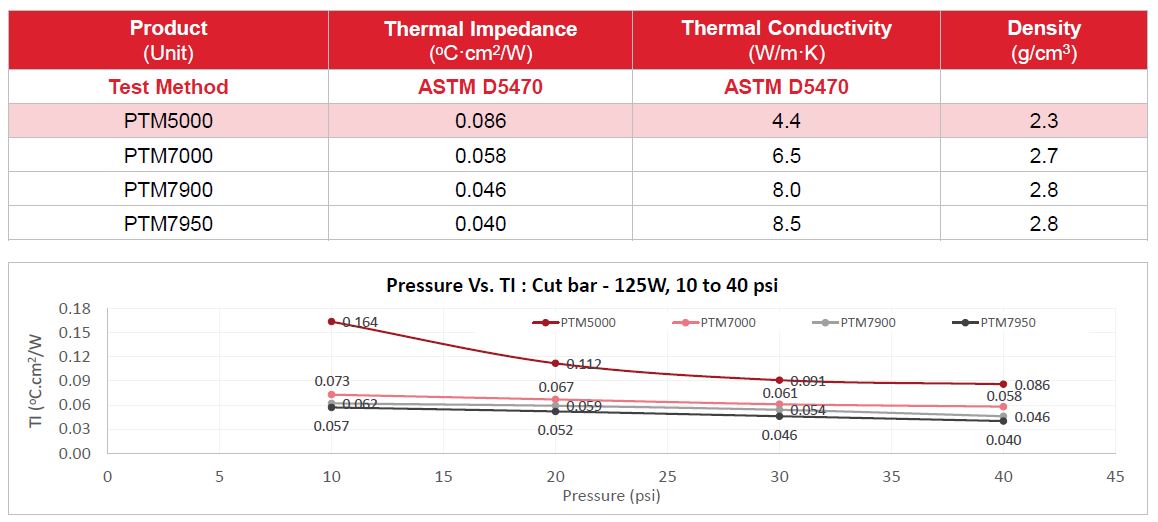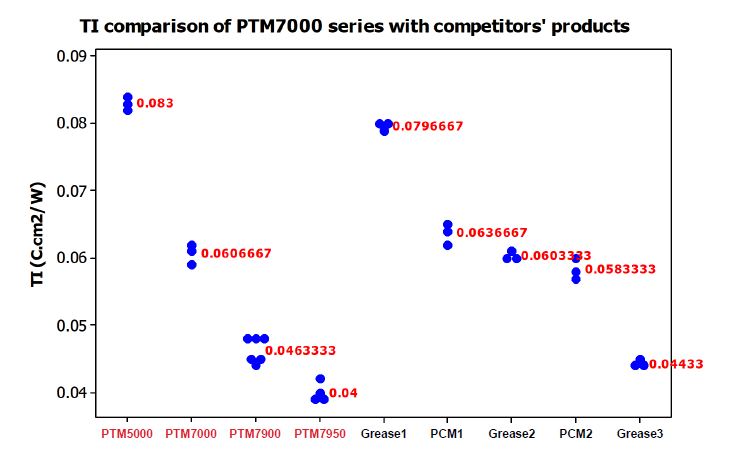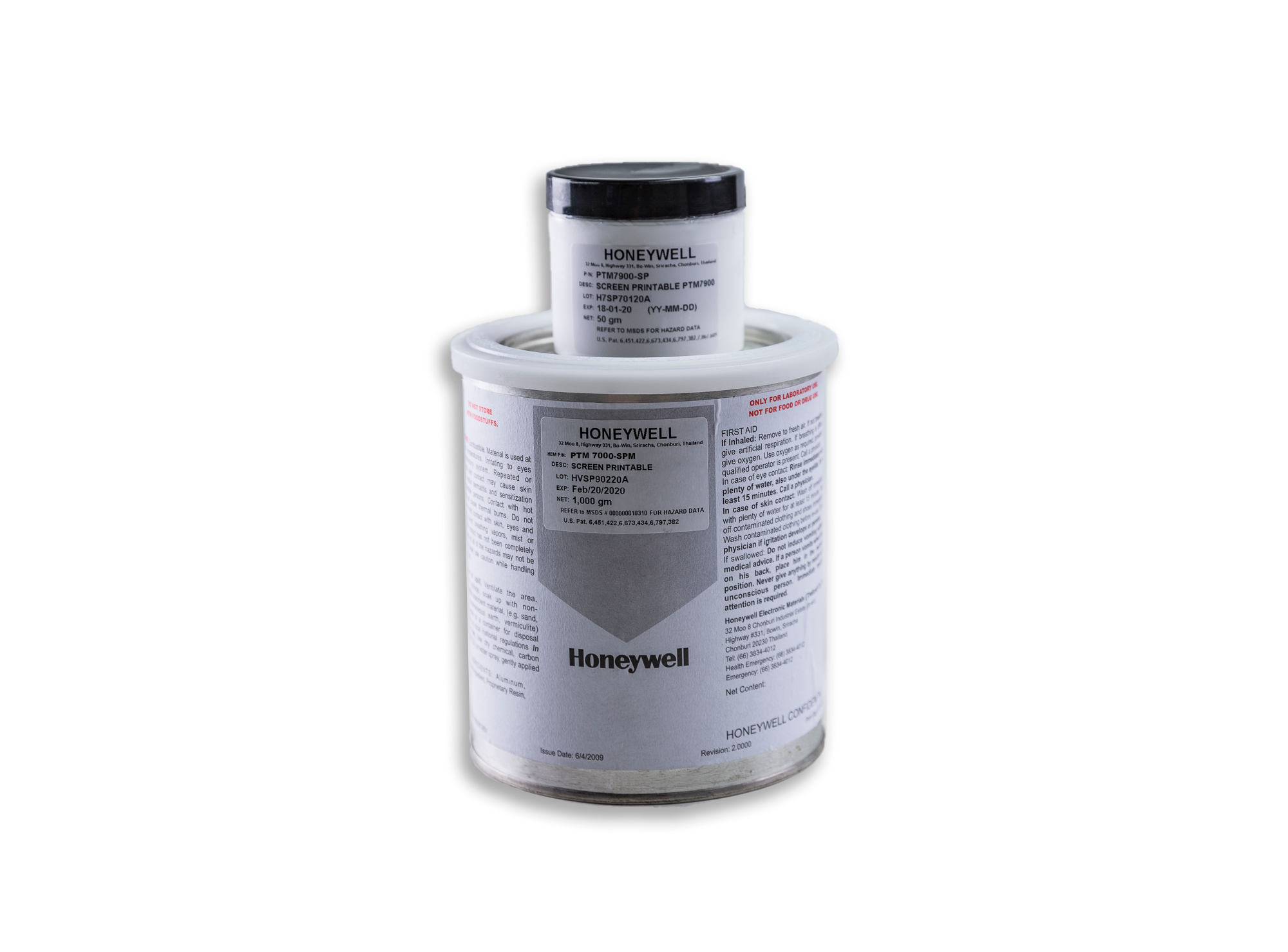PTM 7900-SP | Phase Change Paste
- 0.045 Thermal Impedance
- 8.0 Thermal Conductivity
- Paste form
Product Description
PTM7900-SP is a viscous, stencil printable version of PTM7900 with identical properties. It is designed to minimize thermal resistance at interfaces and maintain extremely stable performance through reliability testing required for long product life applications. It has stable Thermal Impedance across accelerated aging tests and does not display bleed, pump or flow out. PTM7XXX product line has the highest Thermal conductivity and lowest thermal impedance out of the entire PTM Series
PTM7900-SP has a Thermal conductivity of 8.0 (W/m·K) depending on the bondline thickness and is based on a robust polymer PCM structure that exhibits excellent wetting properties during typical operating temperature ranges, resulting in very low surface contact resistance. This proprietary material provides superior reliability and maintains low thermal impedance (0.045) , making it desirable for high-performance integrated circuit devices. It has been qualified from major GPU and cooling solution manufacturers across the globe.
PTM7900-SP is almost as good as it gets. The only product that has slightly better thermal properties is PTM7950 which reaches 8.5 W/m·K and 0.04 TI and is designed for extremely demanding and tight applications.
Drying time
- 24 hours at Room temperature
- Under 5 mins at 100°C
Technical Specifications
| General Properties | |
| Specific Gravity Specific Gravity Specific gravity (SG) is the ratio of the density of a substance to the density of a reference substance; equivalently, it is the ratio of the mass of a substance to the mass of a reference substance for the same given volume. For liquids, the reference substance is almost always water (1), while for gases, it is air (1.18) at room temperature. Specific gravity is unitless. | 2.8 |
| Thickness range | 0.20 - 1.00 mm |
| Electrical Properties | |
| Volume Resistivity Volume Resistivity Volume resistivity, also called volume resistance, bulk resistance or bulk resistivity is a thickness dependent measurement of the resistivity of a material perpendicular to the plane of the surface. | 2.1x1014 Ohms⋅cm |
| Thermal Properties | |
| Specific Heat Capacity Specific Heat Capacity Specific heat capacity is the amount of heat energy required to raise the temperature of a substance per unit of mass. The specific heat capacity of a material is a physical property. It is also an example of an extensive property since its value is proportional to the size of the system being examined. | 0.97 J/(g⋅°C) |
| Thermal Conductivity Thermal Conductivity Thermal conductivity describes the ability of a material to conduct heat. It is required by power packages in order to dissipate heat and maintain stable electrical performance. Thermal conductivity units are [W/(m K)] in the SI system and [Btu/(hr ft °F)] in the Imperial system. | 8.0 W/m.K |
| Thermal Impedance | 0.046 °C·cm²/W |
Additional Information
When choosing a printable paste it is important to understand the process parameters and limitations.
That's why we ask, when you contact us, to include the following information:
- What is your print thickness?
- How long is your printing time and working window?
- What is your drying step after printing?
- Temperature (Room temperature or something else?)
- Time
- Do you have any viscosity limitations in the printing process?

PTM7XXX Series - Pressure vs Thermal Impedance

PTM7XXX Series vs Competition comparison



